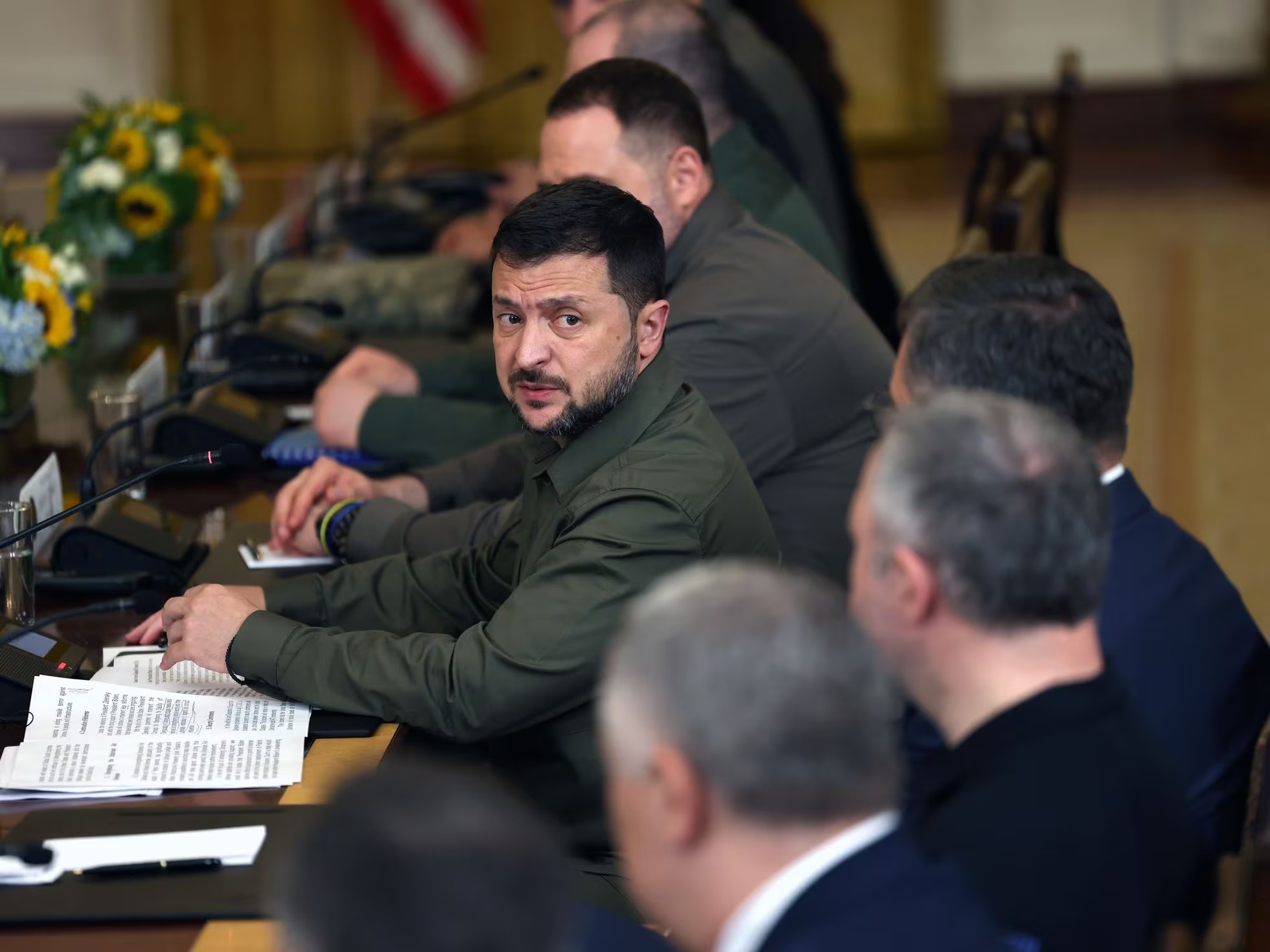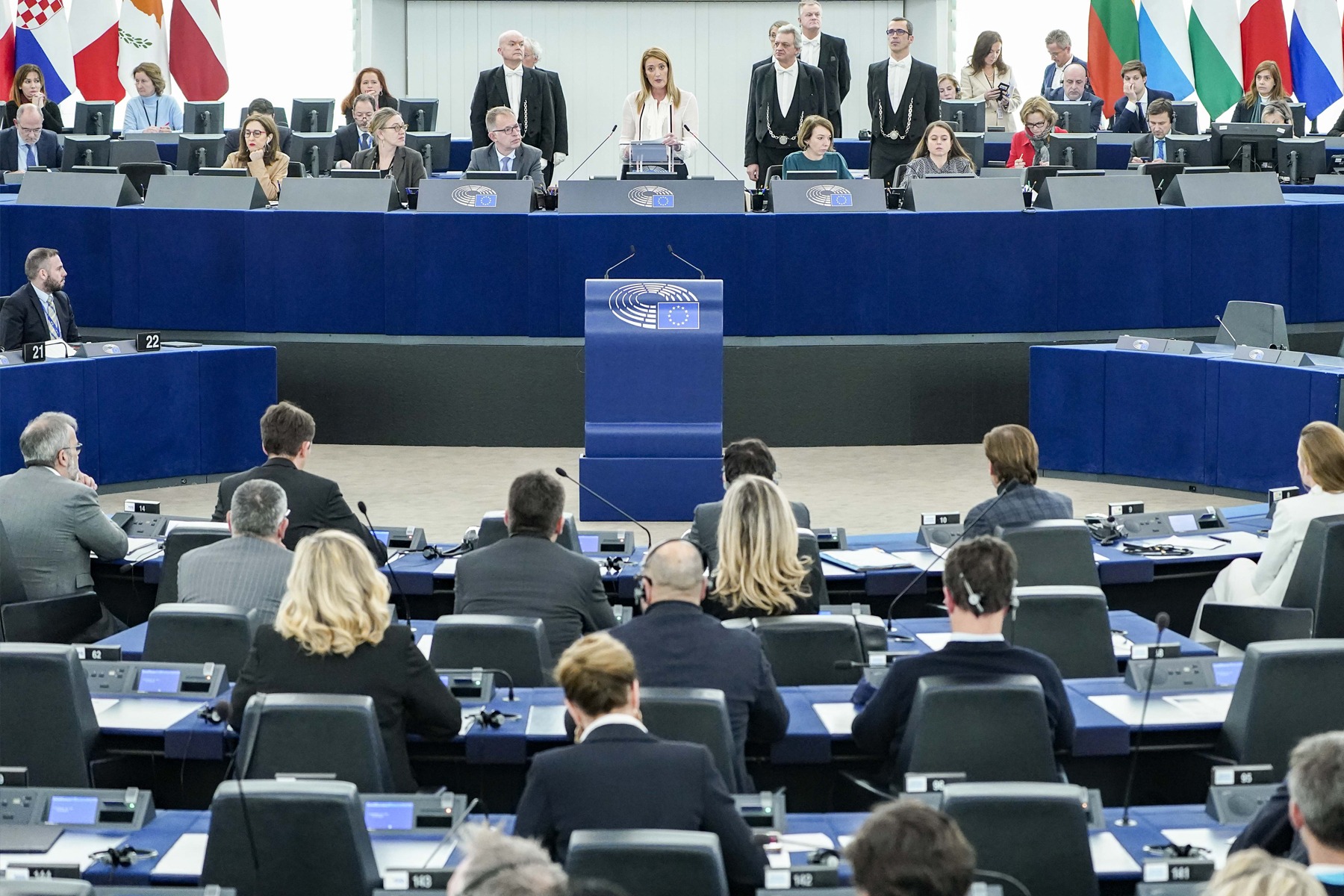Lawmakers from Estonia, Iceland, Denmark, Latvia, Lithuania, Norway, and Sweden expressed concern and frustration during meetings in Washington, citing a lack of urgency from their American counterparts regarding the imperative to support Ukraine amidst Russia’s full-scale invasion.
The Nordic-Baltic delegation, comprising the chairs of each country’s parliamentary foreign affairs committees, has visited the US capital to engage with lawmakers from both the House and Senate, advocating for Ukraine.
Diljá Mist Einarsdóttir of Iceland conveyed their disappointment at a roundtable discussion: “We came here, obviously, to show unity, to show our commitment and hoping that the Americans would hear us. We are leaving America a little bit sad.”

European Lawmakers In Support for Ukraine (Credits: EL PAÍS English)
Despite widespread congressional approval for US assistance to Kyiv at the beginning of the conflict, growing Republican opposition has hindered additional funding for Ukraine. Congress has yet to pass legislation for further aid after last year’s funding exhaustion.
A Senate bill linking Ukraine funding to border security measures was blocked on Wednesday. Following this setback, the Senate voted on Thursday to commence debate on a security spending package with aid to Ukraine.
During the vote on the failed bill, European lawmakers in Washington expressed concern that their US counterparts failed to recognize the urgency of providing continued military support to Ukraine. Rihards Kols of Latvia noted a lack of urgency perception, stating, “I got the notion that the war in Ukraine is very far away, distant from the US.”
“We are so united as never before in Europe, and then you have this phenomenon of isolationism growing with every week in America. This is so strange,” echoed Žygimantas Pavilionis of Lithuania. They acknowledged that the influence of former President Donald Trump and US domestic election considerations were likely playing a role.
Estonian foreign affairs committee chairman Marko Mihkelson highlighted that many US lawmakers sincerely support Ukraine but are apprehensive about the potential impact on their November elections.
He mentioned that lawmakers seemed reluctant to make the case for Ukraine funding in their constituencies, urging the delegation to “do their job.”
Einarsdóttir stressed US lawmakers’ need for immediate action, stating, “Donald Trump is not the president of the United States. The people we are disappointed with, they are actual people that hold actual powers. Of course, he’s a very influential person.
But at the end of the day, we believe that some very powerful people, currently powerful people holding actual powers in the United States, should do more.”
Lawmakers expressed concern about the message the lack of funding, and consequently, weaponry sends to Russia, aligning with worries voiced by the Biden administration. Ine Eriksen Søreide of Norway said, “We are concerned about US support for Ukraine.
And I say that with quite a lot of solemnity because we are at a place right now where Europe, even though we are giving our fair share, and then some to Ukraine, both when it comes to weapons systems and money, we are not able to fill the gap if the US pulls out.”
The lawmakers rejected criticism that Europe was not doing enough. Michael Aastrup Jensen of Denmark stated, “When some Republican congressmen and senators are saying you have to do more – We’re giving everything we have. So we cannot actually do that much more.”
























